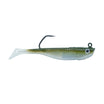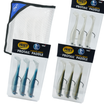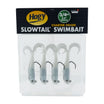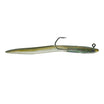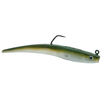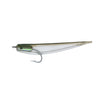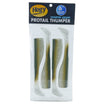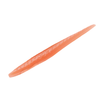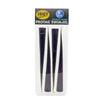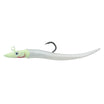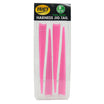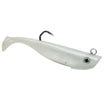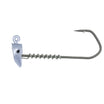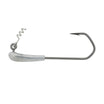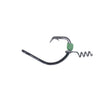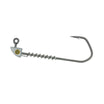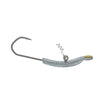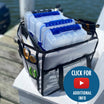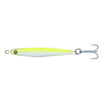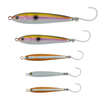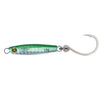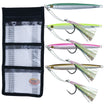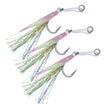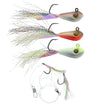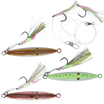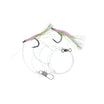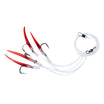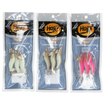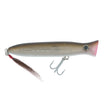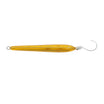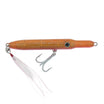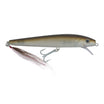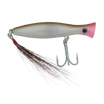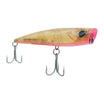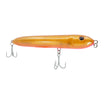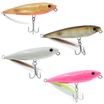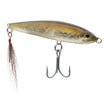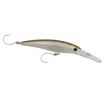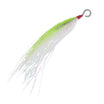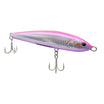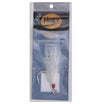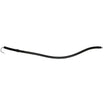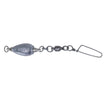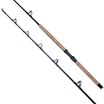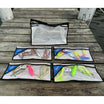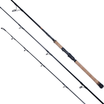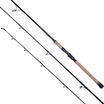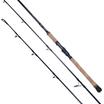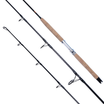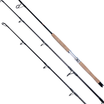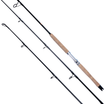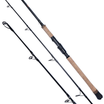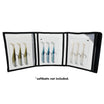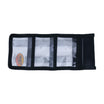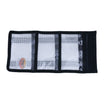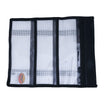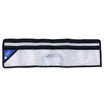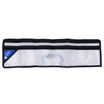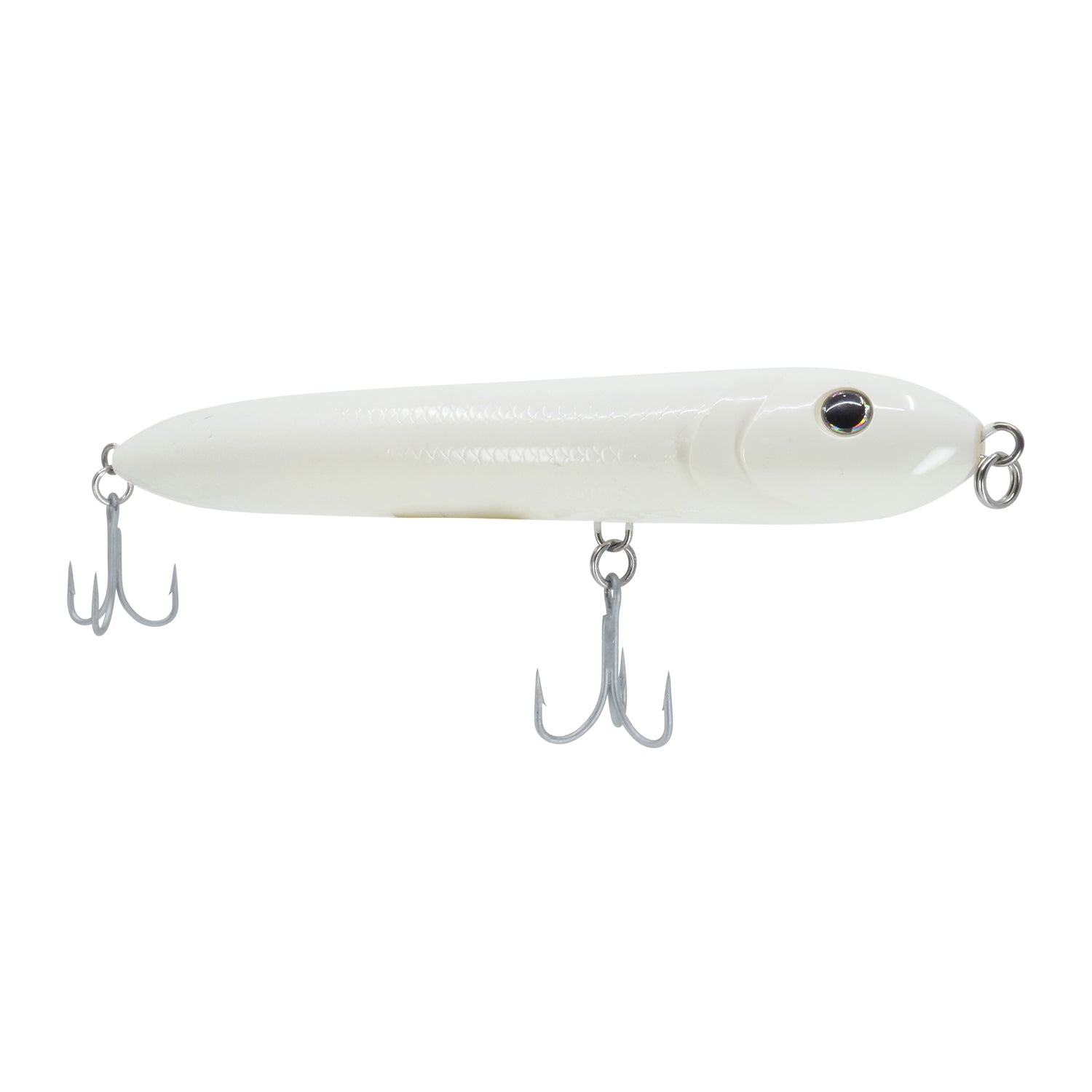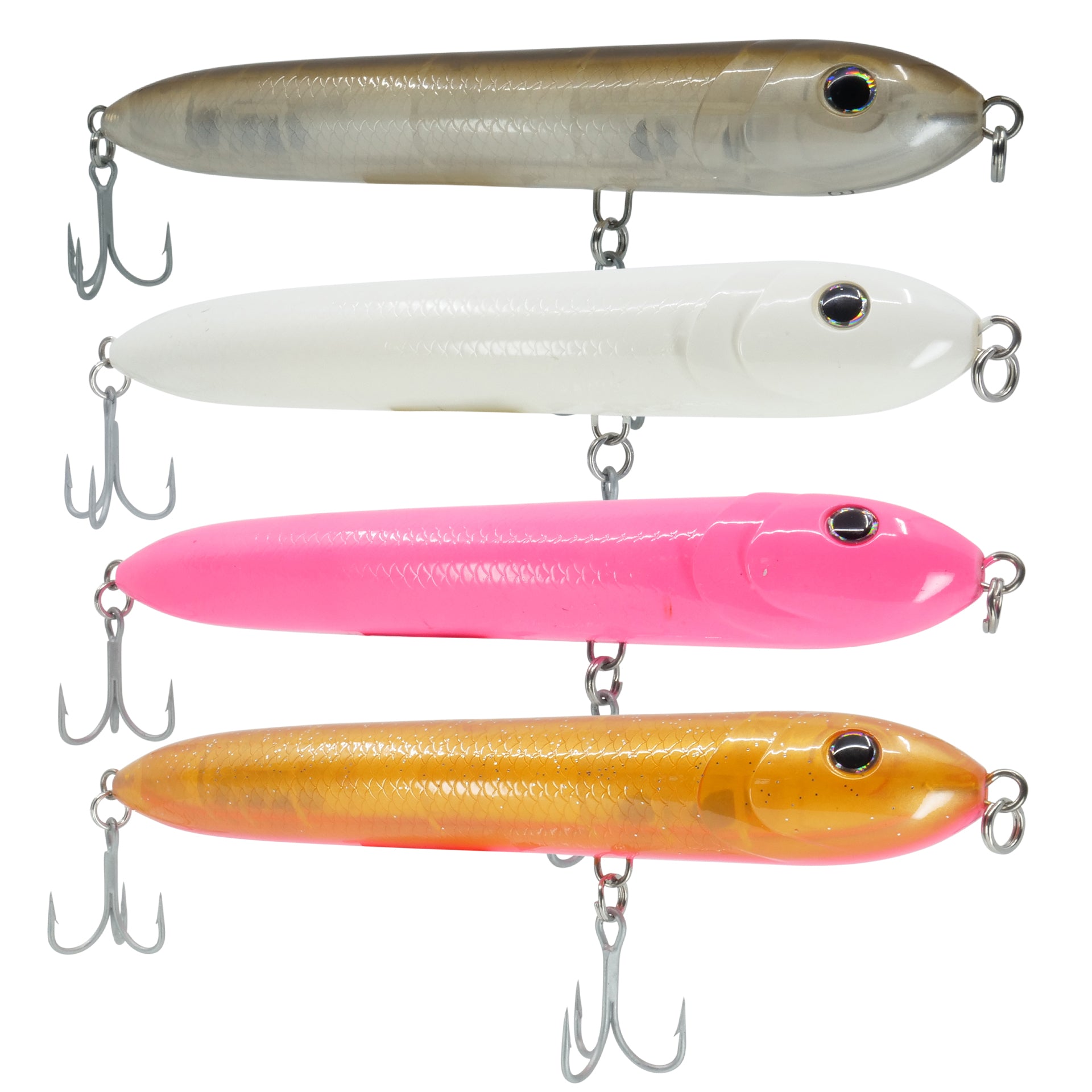Healthy Catch & Release Topwater Striper
Big Stripers on the Move in Warm Shallows
Captain Mike and Captain Rob filmed this session during a peak seasonal push of oversized striped bass moving into shallow, warm waters to feed on abundant pogies. This time of year brings heavy feeding activity, especially in nearshore areas. The abundance of large fish out of the slot limit calls for a heightened emphasis on conservation practices and careful handling.
Environmental Analysis
Windy Day with Casting Advantage
It was a very windy day, which added a layer of challenge to boat control and lure presentation. However, the upside was clear: wind-assisted casting allowed extra reach, helping the captains cover more water with each drift. Managing drift position became critical, especially with fish behavior being subtle and location shifting rapidly in the current.
Situational Analysis
Abundant Bait, Scattered Fish, High Competition
Captain Mike noted that the stripers were well-fed, scattered, and sometimes grouping up, creating an inconsistent but promising bite. With lots of pogies in the water, the challenge wasn’t finding fish—it was getting noticed among the buffet. Big plugs were essential for visual and auditory contrast in the middle of all that bait.
Structure Driving the Approach
Open Flats with Boulder Structure
The area fished was characterized by open flats interspersed with boulder fields, classic striper structure where bait tends to congregate and fish hold in ambush positions. Captain Rob worked these zones methodically, using the boulders to his advantage to drift along productive lines and present lures over likely strike zones.
Approach
Drift-Focused Boat Positioning
Given the wind, drift control was everything. Both captains emphasized staying focused on tactical positioning, adjusting drifts to keep lures in the strike zone. This was an active style of fishing that demanded attention to detail in both the boat’s speed and direction to stay aligned with key structure.
Gear
Heavy Plugs and Rugged Tackle for Responsible C&R
-
Rods: Hogy 7' Hybrid spinning rods—capable of light tackle feel but strong enough for outsized fish.
-
Reels: Van Staal VS200s—built for heavy surf and inshore power.
-
Line/Leader: 40lb braid and 40lb fluorocarbon leader.
-
Lures: XL Dog Walkers, rigged intentionally with the rear hook removed to prevent gill damage and reduce dehooking time.
This setup was carefully chosen to land large stripers quickly while minimizing exhaustion and injury, key to high survival rates.
Technique
Fast “Walk the Dog” for Maximum Commotion
Captain Mike demonstrated a fast-paced “walk the dog” retrieve, chosen to mimic distressed baitfish and draw strikes through noise and surface disruption. This technique worked to cut through the bait cloud, creating a commotion that even satiated stripers couldn’t ignore.
Fish Care
Quick Handling, Smart Rigging, and Revival Tactics
Both captains emphasized best practices for fish care:
-
Rear hook removed to avoid gill injuries.
-
Barbs mashed for quick, clean releases.
-
Fish landed fast with strong gear.
-
Fish held horizontally, never by the lip.
-
Time out of water minimized, with quick measurements and immediate revival.
-
Fish swum carefully until they regained strength, often indicated by a clamp-down on the thumb before release.
They also logged catches into the Massachusetts DMF citizen science project, tracking fight times, hook placement, and release outcomes—using real data to inform future rigging decisions at Hogy.

